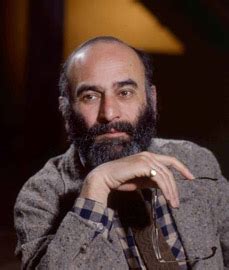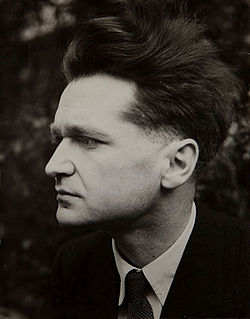A Quote by Rex Tillerson
My philosophy is to make money.
Quote Topics
Related Quotes
To walk in money through the night crowd, protected by money, lulled by money, dulled by money, the crowd itself a money, the breath money, no least single object anywhere that is not money. Money, money everywhere and still not enough! And then no money, or a little money, or less money, or more money but money always money. and if you have money, or you don't have money, it is the money that counts, and money makes money, but what makes money make money?
As has been stated, the purpose of money is to split barter into two parts so that the seller is free to find his source of supply later and elsewhere. This is the sole purpose of money. Any effort to use money to serve another purpose is perversive; and this statement condemns the entire managed money philosophy.
Philosophy aims at the logical clarification of thoughts. Philosophy is not a body of doctrine but an activity. A philosophical work consists essentially of elucidations. Philosophy does not result in 'philosophical propositions', but rather in the clarification of propositions. Without philosophy thoughts are, as it were, cloudy and indistinct: its task is to make them clear and to give them sharp boundaries.
God gave me my money. I believe the power to make money is a gift from God . to be developed and used to the best of our ability for the good of mankind. Having been endowed with the gift I possess, I believe it is my duty to make money and still more money and to use the money I make for the good of my fellow man according to the dictates of my conscience.
Philosophy - reduced, as we have seen, to philosophical discourse - develops from this point on in a different atmosphere and environment from that of ancient philosophy. In modern university philosophy, philosophy is obviously no longer a way of life, or a form of life - unless it be the form of life of a professor of philosophy.
Doing good with other people's money has two basic flaws. In the first place, you never spend anybody else's money as carefully as you spend your own. So a large fraction of that money is inevitably wasted. In the second place, and equally important, you cannot do good with other people's money unless you first get the money away from them. So that force - sending a policeman to take the money from somebody's pocket - is fundamentally at the basis of the philosophy of the welfare state.
I would say to anybody who thinks that all the problems in philosophy can be translated into empirically verifiable answers - whether it be a Lawrence Krauss thinking that physics is rendering philosophy obsolete or a Sam Harris thinking that neuroscience is rendering moral philosophy obsolete - that it takes an awful lot of philosophy - philosophy of science in the first case, moral philosophy in the second - even to demonstrate the relevance of these empirical sciences.


































